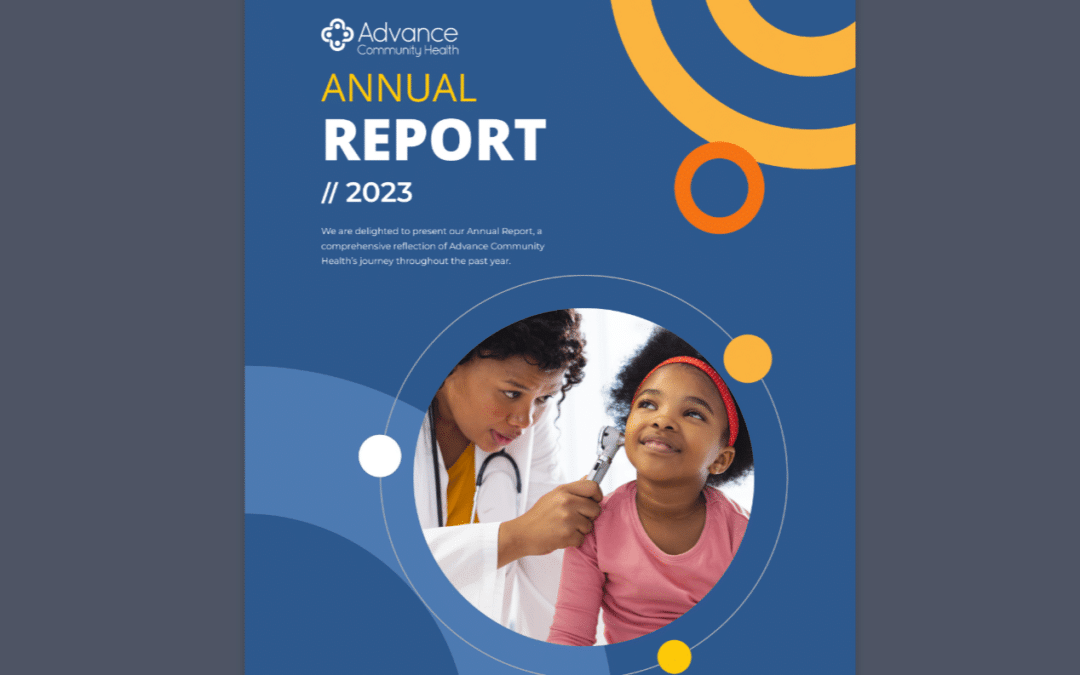It’s a brand-new year and a great time to place your health at the top of your priority list. Along with eating right and getting enough exercise, one of the ways to stay healthy is to get your recommended health screenings, tests, and vaccines.
Screening means checking for a disease when you don’t have symptoms. Health screenings can help your healthcare provider pick up signs of disease early and take steps to prevent it from becoming severe. According to the World Health Organization, early detection is essential for treating cancers and other chronic conditions.
A health screening can help you spot opportunities to reduce your risk of health conditions. It can also help catch conditions early—before complications arise. And before the condition becomes untreatable.
Health screening evaluations shift the focus from trying to fix problems that have already developed, to trying to prevent problems in the first place. Or, for some problems, to intervene before little problems become bigger problems. It’s good for the patient and its good for the whole healthcare system, says Joel Lutterman MD, Executive Medical Director at Advance Community Health.
Here’s what you need to know about health screenings and how they can help keep you healthy.
Health screenings, tests, and vaccines by age
Your age determines the health checks you need because your risk for certain conditions increases as you get older.
From 18 to 39 years
From 18 to 39 years, here are the screenings and health checks you may need:
- Eye tests: Experts advise that you check your eyes every one to two years. Eye checks can help them spot conditions like glaucoma—which can cause blindness—early.
- Weight checks: Checking your weight at least once a year is a good idea. Doing this can help you notice any sudden changes in your weight during the year. It can also help your healthcare team advise you about weight management and help you avoid being overweight or underweight.
- Blood pressure: Checking your blood pressure every year can help you notice when it’s higher than normal. Blood pressure checks can help you spot high blood pressure early and get treated for it. If you are already managing high blood pressure, you need to check your blood pressure more regularly—using the blood pressure measuring schedule recommended by your provider.
- Mental health screenings: Your providers can screen you for mental health conditions like depression. Doing this can be helpful if you have symptoms of depression, such as a persistent low mood, overwhelming sadness, poor appetite, or thoughts of self-harm.
- Skin screenings: This can test any suspicious moles or bumps on your skin for signs of cancer.
- Historical illness screenings: If you have a higher risk for any conditions due to family history, your care team can screen you for them; common examples are heart disease, diabetes or certain cancers.
- Blood work: Blood tests can help your providers determine your blood cells’ normal levels and detect abnormalities in your organs.
Some conditions your care team can check are:
- Cholesterol levels
- Blood sugar levels
- Thyroid hormones
- Kidney function
- Liver function
- Anemia
Sexually Transmitted Infections: Depending on your lifestyle or request, you could get screened for infections such as HIV, chlamydia, HPV, and gonorrhea.
Additional screenings for each sex
Women
Women may require additional screenings such as
- A Pap smear every three years to screen for cervical cancer
- A breast examination, which you should perform for yourself at home each month and by a clinical provider yearly.
Men
Men can have a yearly examination of their testicles by a provider and regular self-exams at home.
Vaccines
In addition to the screenings, you can get vaccinated against conditions such as:
- Influenza (The flu)
- Measles, mumps, and rubella
- Varicella
- HPV
- Hepatitis A
- Meningococcal
- Haemophilus influenzae type b
Ages 40 to 64 years old
In addition to the check you needed earlier, you will also need additional attention, including:
- Colorectal screening: This was usually done from age 50 upwards, but recent research suggests it should begin earlier at age 45. And you can discuss this with your care team.
- Osteoporosis screening: This is done from age 50 upwards, but could be earlier if you have a higher risk. Examples of conditions that can increase your risk are an overactive thyroid gland or low amounts of estrogen and testosterone.
- Lung cancer screening: This is done every year if you smoked in the past. And if you are above 55 years, it might be covered by your insurance.
- Mammograms: These are done for women every one to two years, depending on their risk for breast cancer.
- Prostate exams: These are for men aged 50 and above. But it could be sooner if you have any risk factors, such as a family history of prostate cancer.
Vaccines
In addition to vaccines available for all adults, in this age group, you may need a vaccine for Shingles from age 50 and above.
Ages 65 and above
In addition to the screenings for other groups, you may also need the following:
- Annual height checks: This helps your care team spot signs of osteoporosis.
- Fall prevention screening:This helps your care team recommend walking aids or fall-proofing for your home.
Vaccines
From 65 years and above, you can get the high-dose flu shot. Evidence indicates they are 24% more effective in preventing flu among adults older than 65 than standard vaccines.
Getting the proper screenings can start your year on the right note. Yearly health screenings can help you know what is normal for you and spot abnormal changes early on. With early detection, you can spot health conditions early and get treated. You can also discuss concerns with your care team and make plans to live a long, healthy life.
If it has been a while since you’ve had some of these screens performed, or if you’ve been seeing your medical providers recently for mostly one acute problem after another, now might be a good time to schedule an annual wellness visit to look at you as a whole person and help plan and coordinate an overall care plan.
SOURCES
- World Health Organization. Knowledge to Action: WHO Guide to Effective Strategies
- Prevent Blindness. How Often Should I have an Eye Exam
- Centers for Disease Control and Prevention. About Blood Pressure
- Mental Health America. Depression Test
- Centers for for Disease Control and Prevention. Skin Cancer
- Centers for Disease Control and Prevention. Recommended Vaccines Schedule for Adults Aged 19 Years and Older, United States, 2022
- American Cancer Society. Can Lung Cancer be Found Early?
- American Lung Association. Saved by the Scan
- Centers for Disease Control and Prevention. High Dose Flu Vaccine







